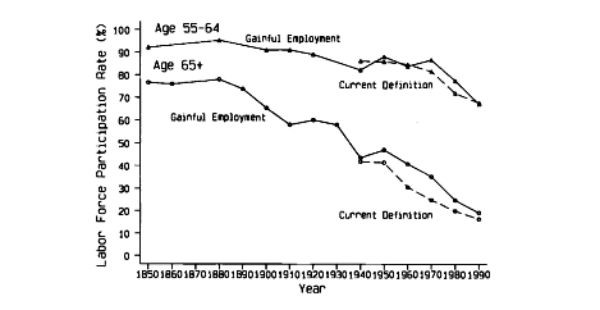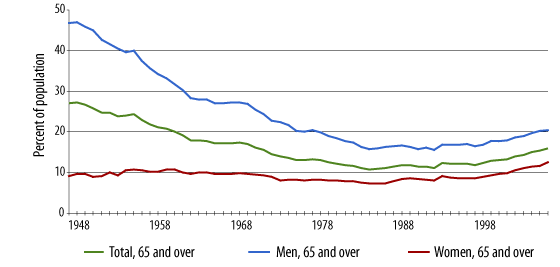
docent/Shutterstock.com
After 80 Years, Retirement Isn't What It Used to Be
As Social Security turns 80, more seniors are returning to the workforce. Is that a bad thing?
On August 14, 1935, President Franklin D. Roosevelt signed the Social Security Act into law—which makes today its 80th anniversary. Current estimates from the Social Security Administration say its trust fund will run out by 2033—two years before the program’s 100th anniversary.
In the years since its passage, Social Security (plus better health) has reshaped old age, making it possible for more and more older Americans to leave the workforce and enjoy retirement. But, as Dora Costa, an economics professor at UCLA, explains, the elderly were dropping out of the workforce well before the passage of Social Security: “The rise of retirement began, not with Medicare or the beginning of Social Security, but more than a century ago. In 1880 the majority of men older than 64 toiled in the labor force. That proportion fell steadily and continuously, and today men older than 64 in the labor force are in the minority.” At the beginning of the century, retirement became more common partly due to the economy’s shift from farming to manufacturing; farmers could work their farms well into their later years, especially with help from family, in contrast with factory workers who were easily replaced with younger, more able men.
Estimated Labor Force Participation Rate for Men, 1850-1990
Social-security accelerated decline in employment for those 65 and older starting in the 1940s, and which continued until the 1980s, when labor participation rates for those 65 and older reversed. Mandatory retirement was abolished in the U.S. in 1986, and by 2010 the labor participation rate for the elderly rose to 16.1 percent. That figure is projected to be 23 percent by 2022. Tendered explanations for the shift include better health, better jobs for seniors (flexible and non-physically taxing), and financial insecurity.
Labor Force Participation for the Elderly, 1948-2007
This may not be entirely a bad thing: Work can provide purpose and activity for those in their later years, and some studies have shown that it can boost physical health. As the idea of retirement continues to evolve for Americans, the hope is that seniors still be able to afford the leisure they seek—whether it’s throughsocial-security reforms or companies taking greater responsibility in their workers’ retirement plans—and that they’re healthy enough to work if they’d like.
(Image via docent/Shutterstock.com)








